This is the Wednesday, February 3, 2021 edition of Today in Slovakia. Learn about politics, business, and other notable events of the day in Slovakia in less than five minutes. If you like what we are doing and want to support good journalism, buy our online subscription. Thank you.
COVID automat with changes
Given the changed epidemic situation currently impacted by the occurrence of new Covid variants, the cabinet agreed on changing some parameters of the COVID automat alert system, which will be launched on February 8.
At the same time, the cabinet agreed on introducing mandatory home office for jobs where presence in the workplace is not essential, and changes to home isolation.
The cabinet is yet to discuss the border regime and the prolongation of the emergency state and curfew, which expire at the end of this week. It is possible that the curfew will be prolonged and will apply the same conditions and exceptions as now (e.g. a negative test result when going to work or out in nature).
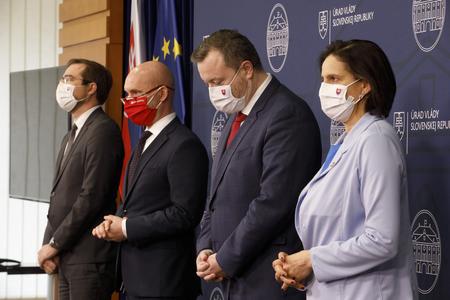
Schools will reopen on Monday
Kindergartens, special schools and grades one to four of primary schools will reopen on February 8. In-person classes will also be allowed for the final grades of secondary schools.
In addition, the cabinet agreed on opening art schools for individual classes, secondary medical schools and their dormitories.
Attendance for in-person education will have the condition of a negative test result. While younger children going to kindergartens and grades one to four of primary schools will not have to take a test, a negative test result no older than seven days will be required from one of their parents.
Secondary school students will have to show a negative test result no older than seven days before attending in-person classes.
School staff will have to be tested.
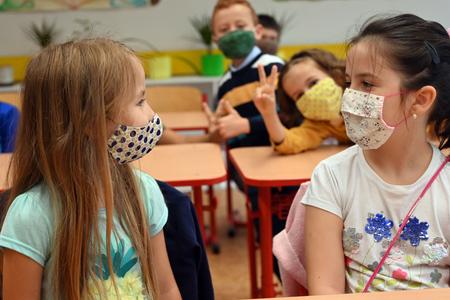
Other coronavirus-related developments
Altogether 2,732of 12,313 testscarried out on February 2 were positive, which represents 22.2 percent. At the same time, out of 111,597 antigen tests, 2,592 were positive (2.32 percent). A further 105 people have died.
The new curfew rules came into force today. This means that people in districts that reported worse results during the nationwide screening (minus Bratislava and Nitra) have to show a new negative test result no older than seven days when going to work and out in nature. The police have toughened up checks until February 8.
Slovakia tries to secure the Sputnik V vaccine. Although the country cannot register its use at the national level, the Health Ministry can issue permission for using the unregistered vaccine.
The first 150,000 doses of the AstraZeneca vaccine are expected to arrive on February 9. It can be used to vaccinate critical infrastructure and people younger than 55 who suffer from chronic diseases.
Police raided ex-minister’s firm
The National Criminal Agency (NAKA) entered the premises of the Aston hotel in Bratislava on the morning of February 3, where the family company of ex-minister Peter Žiga resides.
The raid is reportedly related to the timber business involving Žiga's family company called Taper.
The police are carrying out raids across Slovakia as part of the Drevo (Timber) operation, as Police Corps Presidium spokesperson Michal Slivka confirmed to the private broadcaster TV Markíza.
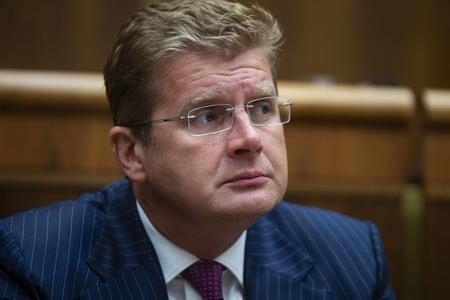
Picture of the day:
Slovak PM Igor Matovič (OĽaNO) is on an official visit to France. Apart from meeting with French President Emmanuel Macron, he laid wreaths at the memorial of Slovak native Milan Rastislav Štefánik and met with Christoph Deloire, secretary-general and executive director of Reporters Without Borders (RSF).
Feature story for today:
People who have been vaccinated against Covid enjoy an exemption from testing, but when crossing borders they are treated like anyone else.
Two weeks after a person has had their second Covid vaccine dose, they are considered fully vaccinated. There were about 10,000 such people in Slovakia at the beginning of February 2021. They are enjoying the benefit of not having to receive testing to gain exemption from the curfew, which applies in Slovakia as part of ongoing mass testing. Instead of a negative test result, they just use their vaccination confirmation.
The basic anti-pandemic measures, like wearing a mask, apply to such people just like everyone else; including the crossing of the country's borders.
Read more in a story by Nina Hrabovská Francelová.
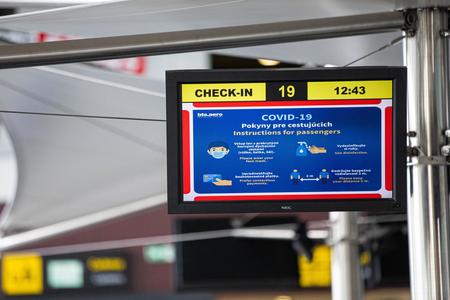
In other news
Businessman Jozef Brhel, who was detained and faces charges in the Mýtnik (Toll Collector) case, was hospitalised on the evening of February 2, reportedlyin a psychiatry ward.
The Council of Europe’s Group of States against Corruption (GRECO) has expressed disappointment in the slow progress of Slovakia in implementing measures to prevent the corruption of MPs, judges and prosecutors. This stems from a new compliance report assessing the country’s progress in the implementation of 16 recommendations issued in the previous report five years ago.
The number of children younger than 18 who show symptomsof depression rose by 33 percent due to curfew and closed schools, according to Svetlana Sithová, head of the inclusive education department of the Education Ministry.
President Zuzana Čaputová will recall Miroslav Fikar as rector of the Slovak University of Technology in Bratislava (STU). The controversial decision of the STU senate from late October 2020 to remove Fikar from his post was criticised by Education Minister Branislav Gröhling (SaS), but he has no powers in this regard.
The cross-country D1 highway stretch near Žilina, part of which is Višňové Tunnel, will be completed by the Skanska construction company for €225 million by 2023. The two other bidders, Metrostav and the Strabag consortium, can appeal the decision made by the National Highway Company.
Only 29 percent of working people in Slovakia are able to work from home in Slovakia. It is one of the lowest shares in the OECD, according to an analysis of Eva Sadovská, analyst with WOOD & Company.
Slovak MEP Michal Wiezik was elected vice president of the Intergroup on the Welfare and Conservation of Animals (IWCA) on February 3. Another Slovak MEP, Martin Hojsík, serves as the group’s vice president as well.
Also on Spectator.sk:
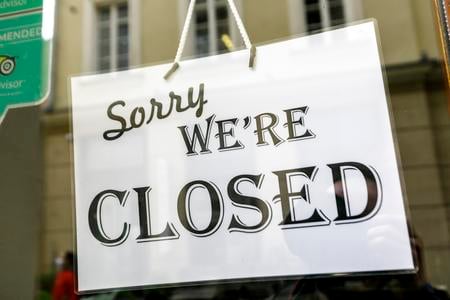
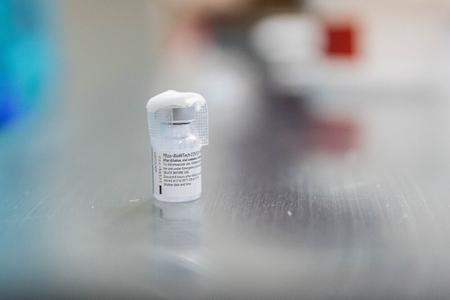
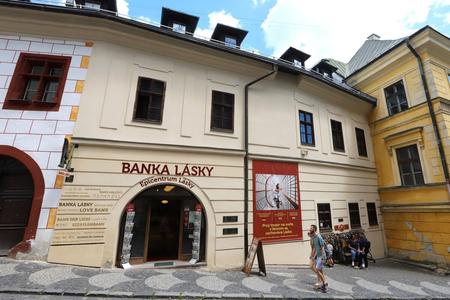


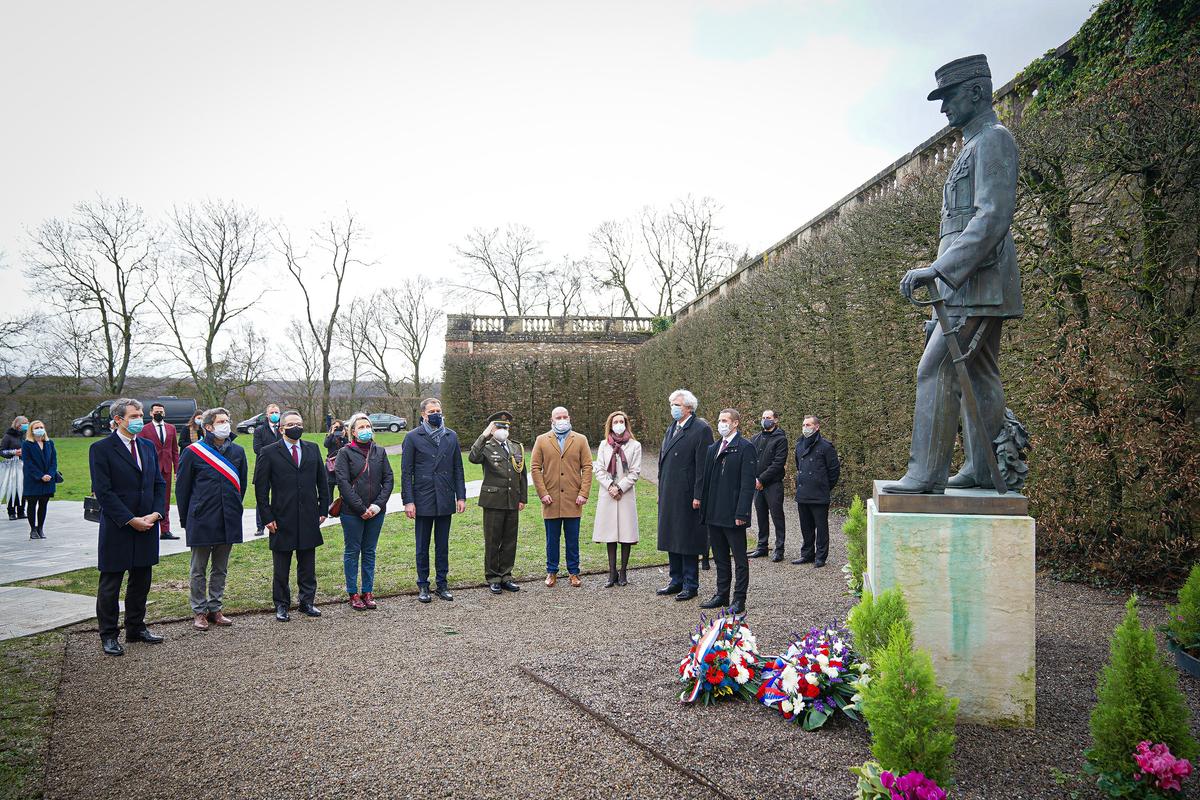 PM Igor Matovič (fifth from the left) laid wreath to the memorial of Milan Rastislav Štefánik during his official visit to France on February 3. (source: Government's Office via SITA)
PM Igor Matovič (fifth from the left) laid wreath to the memorial of Milan Rastislav Štefánik during his official visit to France on February 3. (source: Government's Office via SITA)
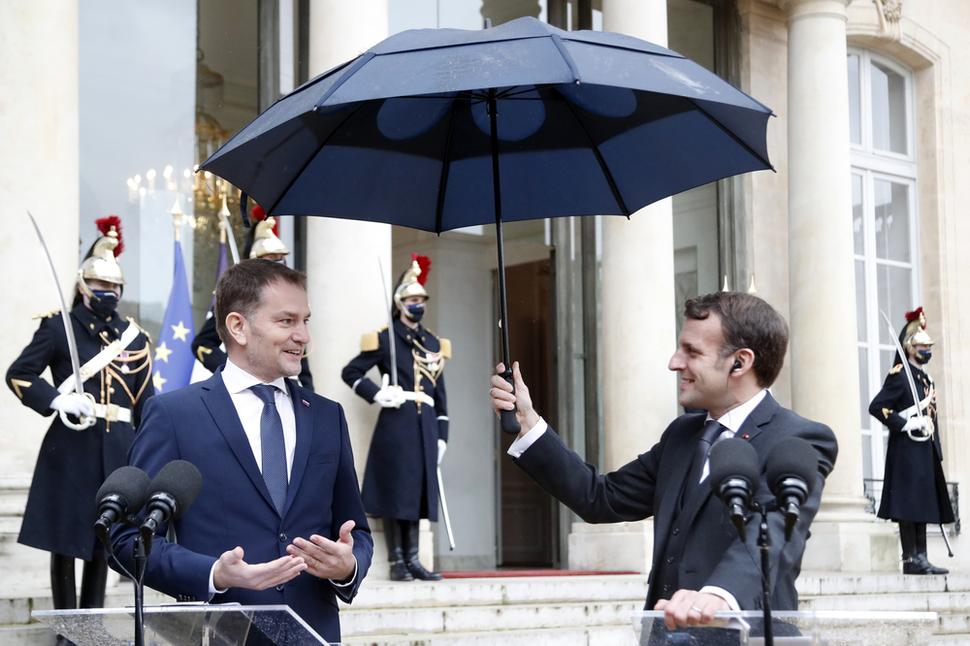 French President Emmanuel Macron holds an umbrella as Slovakia's PM Igor Matovič speaks to the medias before a business lunch at Elysee Palace on February 3, 2021 in Paris. (source: AP/TASR)
French President Emmanuel Macron holds an umbrella as Slovakia's PM Igor Matovič speaks to the medias before a business lunch at Elysee Palace on February 3, 2021 in Paris. (source: AP/TASR)